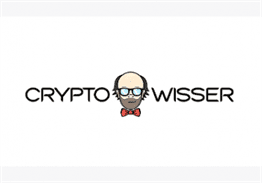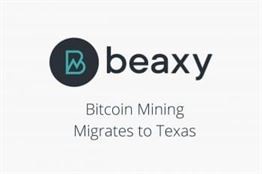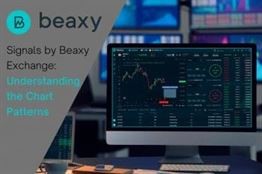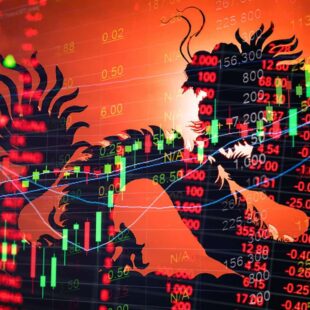United States citizens cannot pay their taxes in anything other than dollars. They cannot pay taxes with cows, sheep, or financial assets like stocks or derivatives. They have to pay taxes in dollars, which essentially creates a demand for dollars. This demand is what fundamentally drives the value of money like the dollar. Furthermore, we also employ variance decomposition and impulse-response functions to the strength the interaction among the variables.
Can Cryptocurrencies One Day Overtake Fiat Currencies? – The Motley Fool
Can Cryptocurrencies One Day Overtake Fiat Currencies?.
Posted: Thu, 23 Sep 2021 07:00:00 GMT [source]
It’s possible to imagine a scenario where you and your neighbor agree to trade 25 pounds of your tomatoes for 25 pounds of his corn. Barter system will cause one party had to suffer at the end of trading because there was no measure of value, even if two persons met together who wanted each other goods, they could not find a satisfactory equilibrium price. This situation can be explained when you have each paid for what you want with something other than money. This system was possible only in a simple economy but after the development of economy, direct exchange of goods without the use of money, was not without defects. Even though barter was limited in its usefulness, it played a major role in developing the concept of money. A common misconception is that, unlike currencies of the past that were based on a gold, silver, or other precious metal standard, fiat currencies don’t have “anything” backing them. As commodity money, gold has historically served its purpose as a medium of exchange, a store of value, and as a unit of account. Commodity-backed currencies are dollar bills or other currencies with values backed up by gold or other commodities held at a bank.
What is Money in Economics?
Monetarist theory suggests that inflation is alternatively the reduction in the purchasing power of a unit of currency in an economy. Generally accepted as money– It must be easily recognizable and generally accepted as money. Dog teeth might have a popular form of money in the Admiralty Islands, but most people in other countries would find them disgusting. ‘Fiat’ is a word derived from Latin and means “let it be done” in the sense of an order, decree, or resolution. Indeed,fiat moneyis declared as money by a central authority, usually the government. Commodities utilized as money can be characterized as having value because they have another use apart from being a medium of exchange.
Fiat Money vs. Legal Tender: What’s the Difference? – Investopedia
Fiat Money vs. Legal Tender: What’s the Difference?.
Posted: Sat, 25 Mar 2017 15:27:54 GMT [source]
What this does is harm economic growth as it shifts capital away from savings and investment and towards immediate consumption. Consumers would rather spend the money and have something to show for it rather than inflation destroy their savings. With KYC in place, then national cryptocurrencies can be used to write smart contracts and found autonomous companies. It can then also be used to store proof of ownership—everything from ownership of digital books to cars and properties and more. If implemented properly, it can be a tool to integrate the nation’s unbanked into the existing financial system.
Representative Money
Earlier in history, people used gold in exchange for goods and services, instead of the paper money we’re all used to today. But now, instead of gold, we use currency such as the U.S. dollar, the euro, and even cryptocurrency in exchange for products. Unlike commodity currencies, which could be affected by the discovery of a new gold mine, the supply of fiat currencies is regulated and controlled by the respective currency’s government. There is less risk of an unexpected devaluation caused by the supply of fiat currencies, as any increase in supply is a pre-empted decision made by a fiat currency’s government. Time will tell how cryptocurrencies will ultimately be used for financial transactions, and where they’ll eventually fit in the international monetary system. For now, keep an eye on the developments and consider the pros and cons of fiat money when making decisions about saving and investing. When the economy is overheating, then the central bank can contract the money supply, which throttles the economy to a safer pace. The value of money must be stable, keeping most of its value in time; otherwise, people would not accept it for payment. Money must be relatively scarce, so the supply of new money must either be difficult to counterfeit, or tightly controlled. Increases in the money supply must be gradual and expand with the economy.
One can classify currencies into three monetary systems: fiat money, commodity money, and representative money, depending on what guarantees a currency’s value (the economy at large vs. the government’s physical metal reserves).
— Matty Sats™️ will never DM you (@mattysats) May 4, 2021
If the average consumer knew Walmart would accept the currency, there would be a level of trust placed in it. However, fiat money falls apart when people start to refuse it as a medium of exchange. As it is legal tender, it means businesses such as Walmart have to accept it and therefore, enshrines peoples trust in it. The additional $900 has been generated as debt by the bank and reflects commercial bank money. Although overprinting fiat currencies could lead tohyperinflation, most developed countries usually experience a moderate amount of inflation. Hyperinflation has occurred in the past, even with commodity money, and it could occur in the case that a fiat currency rapidly loses value, such as when people lose faith in the nation’s currency. It began to see widespread use in the 20th century when the US dollar was decoupled from the price of gold. With the advent of cryptocurrencies such as Bitcoin, there’s been debate about whether such digital assets could ultimately supplant fiat money as the preferred medium of exchange, or at least provide an alternative.
Pros and cons of fiat money
In times of economic turmoil, such as severe economic depressions or hyperinflation, people sometimes turn to commodity money instead of the money authorized by their governments. Representative money is a certificate or token that can be exchanged for the underlying commodity. For example, instead of carrying the gold commodity money with you, the gold might have been kept in a bank vault and you might carry a paper certificate that represents-or was “backed”-by the gold in the vault. It was understood that the certificate could be redeemed for gold at any time. Also, the certificate was easier and safer to carry than the actual gold. Over time people grew to trust the paper certificates as much as the gold.

Examples of commodity money include precious metals, foodstuffs, and even cigarettes. M2 is one of the aggregates by which the Federal Reserve measures the money supply. It is a broader classification of money than M1 and a key economic indicator used to forecast inflation. M2 consists of all the liquid components of M1 plus near-monies. Near monies are relatively liquid financial assets that may be readily converted into M1 money. More specifically, near monies include savings deposits, small time deposits (less than $100,000) that become readily available at maturity, and money market mutual funds. As it has been previously noted, this study aims to find the long-run relationship between money supply and macroeconomic variables and also between commodity monies and macroeconomic variables. Thus appropriate econometric tools have to be chosen, that can test for cointegration in economic system. One the possible techniques, and probably the most popular one at present has been introduced by Johansen. More specifically, it indicates that money supply, commodity monies and macroeconomic variables are cointegrated over the period of analysis.
Introduction to fiat currency
Third-party blogger may have received compensation for their time and services. This blog does not provide legal, financial, accounting or tax advice. Intuit does not warrant or guarantee the accuracy, reliability, and completeness of the content on this blog. Comments that include profanity or abusive language will not be posted. While it is true that all money in an economy serves three functions, not all money is created equal. With its value tied to a government, a fiat currency can significantly depreciate if the issuer runs into trouble.
While this is true to some degree; gold does, in fact, have a number of uses, it’s worth noting that the most often-cited uses of gold are for making money and jewelry rather than for making non-ornamental items. Cryptocurrency enthusiasts are continually striving to solve some of the problems with cryptocurrency. A major problem with Bitcoin and other cryptocurrencies is that it takes considerable time to process transactions. One solution was to increase the block size of the individual blocks in the blockchain, so that more transactions can be processed in a batch. However, this can also slow the network and require more time to accumulate enough transactions to fill the block. Only when 1 of the users terminates the relationship will the blockchain be updated and any remaining funds released to the appropriate parties. Even using Bitcoins as a means of payment can be problematic, since most people would want to look up the current exchange value before engaging in a transaction, thus complicating even simple transactions. Moreover, the value of Bitcoin could change significantly between the time that someone receives it as income and the time that it is spent, making financial planning impossible. Although commodity money is usable in some form other than as money, it also must satisfy the other characteristics of money.
How to position bitcoin in the financial system
This is because it is declared legal tender by the government as is not backed by a commodity. What fiat money does is cut ties with commodity money and therefore reduce demand for such commodities. This creates a greater level of price stability as consumers are not so prone to store it. Both can be paper money such as the US dollar, and both have no value in and of itself. The term ‘fiat’ is ‘a formal authorization or proposition; a decree.’ So fiat money, is a type of money that is given value purely by an official law or order. For example, if consumers and businesses don’t trust in it as a store of value, then businesses would not accept it as a medium of exchange. Read more about eth value calculator here. It is only because people know others will accept it in exchange for goods that it maintains its value. Fiat money is a currency whereby its value comes from government decree.
Fiat money vs commodity money https://t.co/PNPlHIinId
— Haha (@1sttimetwitt) October 5, 2020
Whether fiduciary money is worth anything is decided by the anticipation that it will be widely recognized as a future means of trade. Before 1970, the world was governed by the gold standard, which allowed people to swap the currency they owned for https://www.beaxy.com/market/btc/ gold at any time. Countries that adhered to the gold standard established a fixed price for gold and traded gold at that price, therefore maintaining the gold standard. The value of the currency was determined based on the fixed price established.
Are US dollars fiat or commodity money?
The U.S. dollar is considered to be both fiat money and legal tender, accepted for private and public debts. Legal tender is basically any currency that a government declares to be legal. Many governments issue a fiat currency, then make it legal tender by setting it as the standard for debt repayment.
Assumed that the government issues only nominal debt that is not state contingent. This has important implications for monetary policy in their model. Although the nominal interest rate is zero at all dates and in all states so that expected inflation is equal to minus the real interest rate , unexpected inflation can be used as a lump-sum tax on nominal assets. In other words, unexpected inflation can be used to make the nominal debt state contingent in real terms. Modern banks produce fiat money on the basis of fractional reserves. These two facts account for much of the romance, mystique, and confusion surrounding finance.
- To serve as a convenient means of payment, as an unit of account and as a store of value, the creation and destruction of money must be carefully controlled according to the needs of the economy.
- However, with fiat money, it is a defining trait as this is the main source of its value.
- The Trilemma was resolved in favour of exchange rate stability to encourage the rebuilding of trade in the postwar period.
- However, the situation with major currencies such as the euro, the United States dollar and the Swiss franc is more complex.
- We cannot be scraping bits of a clump of gold on a weighing scale in the supermarket to pay for a kilo of meat.
It is different from the standard ounce and optimal for noting the weight of precious metals like gold, platinum, and silver. The Fiat money system is backed by the reliability of the issuing government and is used as a means of payment. Moreover, its value relies on the nation’s commercial performance, leadership, and its effect on lending rates. Please note that thefiat money systemis unredeemable and inconvertible. During the 1960s, production of silver coins for circulation ceased when the face value of the coin was less than the cost of the precious metal it contained . In the United States, the Coinage Act of 1965 eliminated silver from circulating dimes and quarter dollars, and most other countries did the same with their coins. The Canadian penny, which was mostly copper until 1996, was removed from circulation altogether during the autumn of 2012 due to the cost of production relative to face value.
What is Bitcoin backed by?
But Bitcoin isn't actually backed by anything physical—only the complicated mathematics underlying its blockchain technology and controlled supply. This ensures Bitcoin remains limited in supply and is resistant to censorship—which imbues it with some of its value.
The Bretton Woods Agreement fixed the value of one troy ounce of gold to 35 United States Dollars. However, in 1971, United States President, Richard Nixon, introduced a series of economic measures including canceling the direct convertibility of dollars into gold due to declining gold reserves. Since then, most countries have adopted fiat monies that are exchangeable between major currencies. Commodity money is to be distinguished from representative money, which is a certificate or token which can be exchanged for the underlying commodity, but only by a formal process. A key feature of commodity money is that the value is directly perceived by its users, who recognize the utility or beauty of the tokens as goods in themselves.

After the end of Bretton Woods which ended trading of gold at the fixed price of $ 35/once, the gold standard has not been used in any major economy since that time. From the history we have discussed, we can see that fiat currency is not appearing suddenly but how we gradually transitioned into this system. The issuers of the notes are interested in earning seigniorage, or profits from the issuance of money. They act like fractional reserve bankers, issuing Hours in exchange for dollars, which they put out to interest. In fact, there is no good reason to hold such notes unless one believes (“buys into”) the dubious Marxist rhetoric that often accompanies them. Modern fiat money has no intrinsic value in the way that commodities do, and its value is based purely on its acceptance as a medium of exchange. All historical attempts at maintaining a fiat currency have failed, usually with disastrous consequences, and ultimately with a return to commodity money.
During the American Civil War, the Federal Government issued United States Notes, a form of paper fiat currency known popularly as ‘greenbacks’. Their issue was limited by Congress at slightly more than $340 million. During the 1870s, withdrawal of the notes from circulation was opposed by the United States Greenback Party. The money that is easily accepted and convenient to carry anywhere and everywhere is known as fiat money. It is convenient to carry because it has comparatively low-risk factors or takes less space to carry.


